Evaluating the Impact of a Longitudinal Clerkship Lecture on Medical Students Knowledge and Response to Human Trafficking [Education and training]
Annals of Family Medicine
NOVEMBER 20, 2024
Few medical schools include this topic in their curriculum, and it is not standardized in undergraduate medical education. Screening knowledge was 92% post session, 75% at 3 months, 97% at 6 months, and 75% at 12 months. Knowledge of referral resources was 89% post session, 61% at 3 months, 78% at 6 months, and 61% at 12 months.

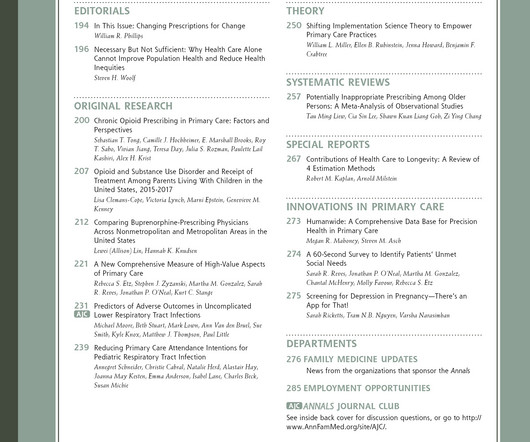
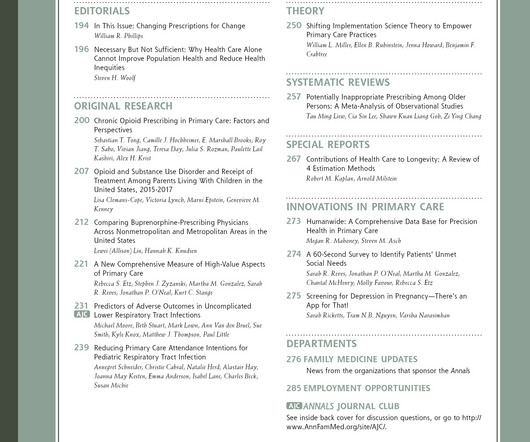

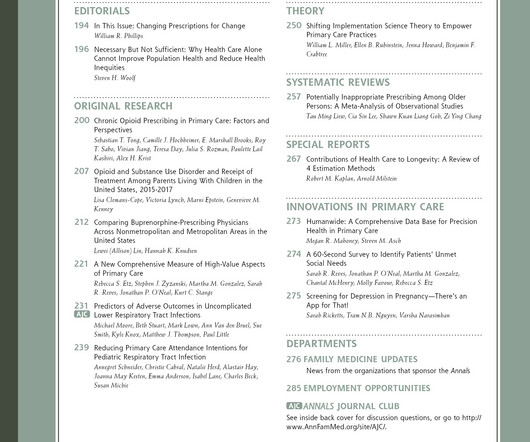
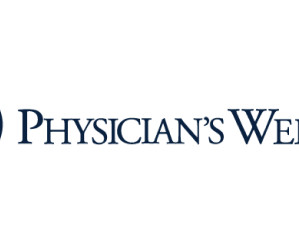

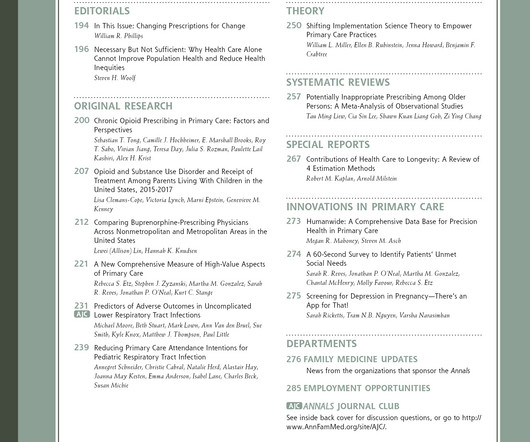


















Let's personalize your content